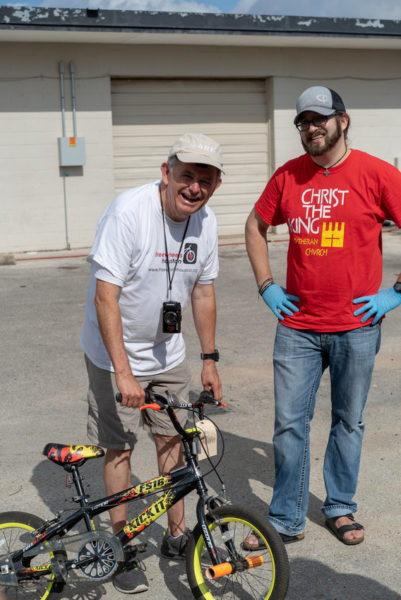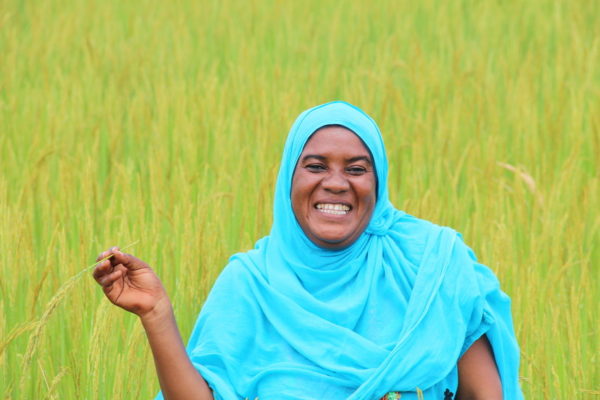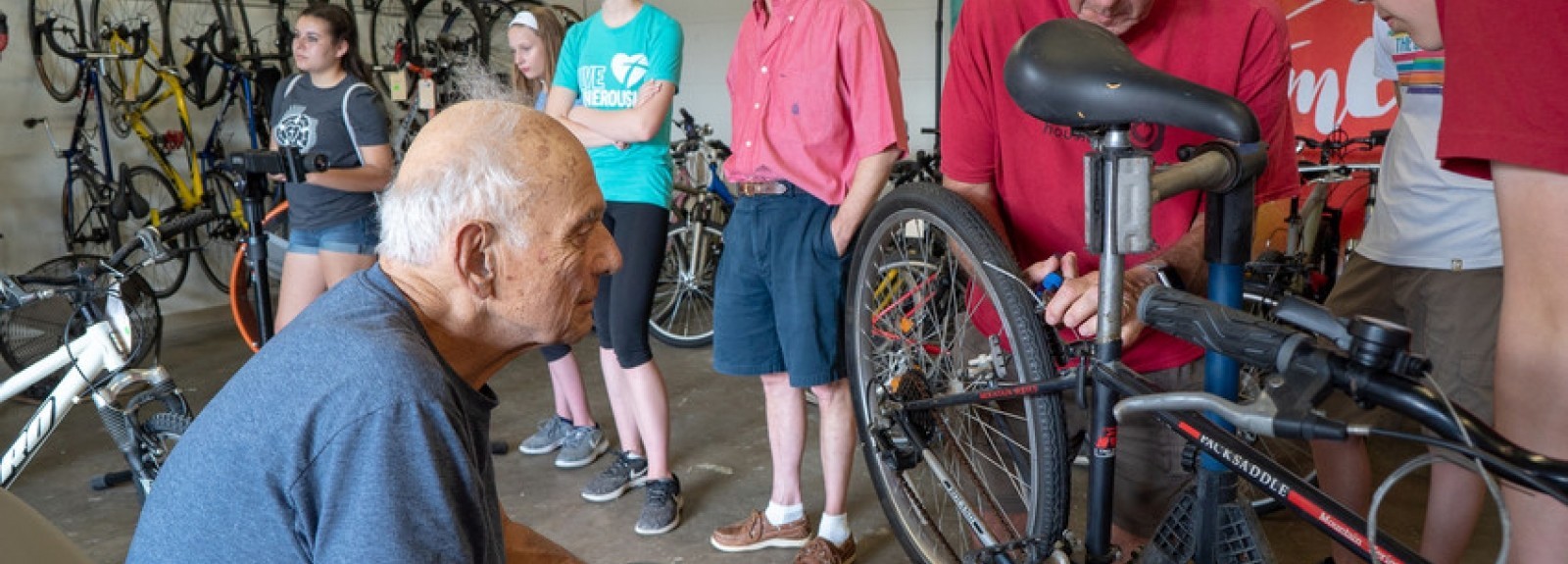It’s a sunny Saturday morning in Houston. Bill Mintz, a former journalist and public affairs director for the Apache Corporation, is erecting a tent at Freewheels Houston, a bike donation, repair and distribution organization serving the local refugee community. The tent will provide cover to the volunteers who will be working in the 90-plus degree weather.
Freewheels is one example of how Bill and his wife, Kathy Collins, have dedicated significant time, effort and resources to being good neighbors — in their own back yard and around the world.
An Unmet Need
Bill started Freewheels in 2015. A friend asked if he’d donate a bicycle to be given away at a World Refugee Day event in the community. The winner was an excited 12-year-old refugee girl.
Afterwards, the same friend told Bill how important bikes were to the resettled community. The U.S. Refugee Resettlement Program requires refugees to find work almost immediately. Most arrive having spent years in camps and with few or no resources.
“Their choices when they find work or need to go to English language classes…are to walk or take a bus or convince a friend to give them a ride. If they have a bicycle, that makes life a lot easier,” Bill explains.
In 2015, the U.S. admitted nearly 70,000 refugees, according to the Refugee Processing Center. At the time, Houston was a top resettlement spot. It was clear to Bill that there was a great need for donated bicycles.

He spoke to his church, Christ the King Lutheran, and asked if anyone would be willing to donate bikes. Since then, Freewheels has given away about 350 bikes. When Bill and Kathy launched Freewheels in their garage, students from the student-run bike repair shop at Rice University helped with repairs. The operation quickly outgrew Bill and Kathy’s garage and is now housed in a 2,300-square-foot warehouse. More than 160 volunteers from across the community — including middle and high school students — have helped to keep the shop running.
And in June 2018, Bill enlisted the help of teens attending the ELCA Youth Gathering to help train middle school-age refugees on bike safety and operation.
Boundless rewards
If the success of Freewheels taught Bill anything, it’s that Houstonians have a desire and willingness to help their neighbors in need, and that refugees have much in common with their new neighbors.
“[All people] want to be able to do right by their families, and that’s true [no matter where you were born],” he says.
For Bill, that is the link between his and Kathy’s support of Freewheels and their support of Lutheran World Relief. Both efforts count on people who want to help others create better lives for their families.
“To me, it’s part of the same thing. It’s helping people and turning other people on to how rewarding it is,” he says. “We want Lutheran World Relief to be really successful and we want to help spread the word about it.”
Bill’s support of Lutheran World Relief began in 2013 – two years before he founded Freewheels — when Bill traveled to Tanzania, where he met farmers learning how to grow more rice and earn more money to feed and support their families.

Bill remembers how Lutheran World Relief helped the community rebuild their irrigation system and helped farmers get better seeds and fertilizer. Lutheran World Relief also supported a local farmers’ cooperative in constructing a warehouse where farmers could store their rice, so they could sell in off season when demand — and prices — were higher.
It was a success. The majority of farmers saw their crop production increase from 14 to 22 bags of rice per acre. Sixty percent of families were eating three meals a day at project’s end, a marked improvement from pre-project days.
“I met a woman there who was the head of the household, and she was building a new house. We were in this house, and she was very proud of it,” Bill says. “She looked up at the roof and said, ‘This is the roof that Lutheran World Relief built.’ Lutheran World Relief didn’t actually build the roof, but the point was clear.”
In Lutheran World Relief, Bill and Kathy see an organization that partners with families on solutions that will help them improve their lives for the long term.
“Everything has another life,” he says of the bikes as he speaks to a group of Freewheels volunteers. “You gave people a way to expand their lives.”


